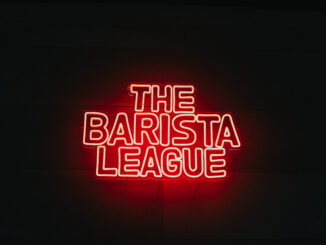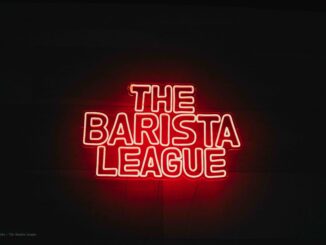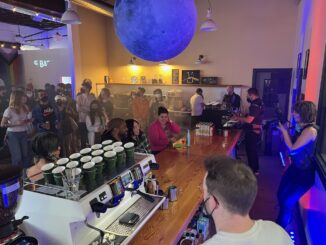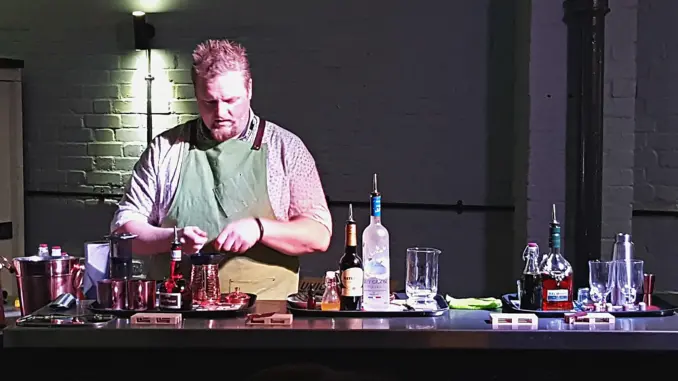
Two-time UK Coffee in Good Spirits Champion and Q Arabica Grader David Jameson shares his experience hosting coffee competitions.
BY VASILEIA FANARIOTI
SENIOR ONLINE CORRESPONDENT
Photos courtesy of David Jameson
Editor’s note: This interview has been condensed for length and clarity.
For the second part of our series on coffee competition emcees, we are thrilled to be joined by David Jameson. He’s the founder and owner of Danelaw Coffee, with over 17 years of experience in the industry. He’s a Q Arabica Grader, a two-time UK Coffee in Good Spirits Champion, and coach of the 2017 World Coffee in Good Spirits Champion, Martin Hudak. David is no stranger to the coffee competition world. In this interview, we’ll learn about his experiences as an emcee and what he has learned along the way.
So, David, what inspired you to take part as an emcee in a coffee competition?
I had pretty much finished competing and the business I was working in at the time was sponsoring the UK Cup Tasters Championship, which gave me a platform to start emceeing. This felt like a good way to stay connected to the competition scene and help to steer the story of the brand I was working for too. From there, it got a bit addictive and I realized that I really enjoyed it. People seemed to react well too. I was then encouraged to do more and more of this over the next few years.
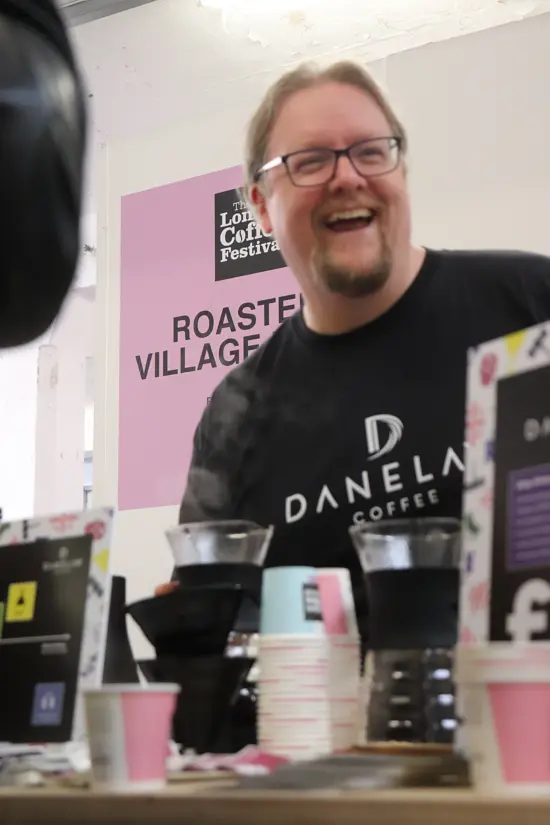
What can you tell us about your experience as an emcee at competitions around Europe?
After I had done a couple of competitions, I was eager to try to graduate to international emceeing. I was asked to emcee the Hungarian AeroPress Championship, which I wasn’t sure I was ready for. It seemed to go pretty well. Then as I was walking past the World Cup Tasters Championship, the emcee who was on stage asked if I could cover while he took a meeting back at his stand. So without a lot of planning, I ended up hosting that too.
The Amsterdam Coffee Festival at this point featured a coffee cocktail competition, my specialty. I had entered the previous year, but my bartender partner had moved to Sydney, so I couldn’t enter in 2018. I spoke to the organizers and they asked me to emcee. It was a three-day competition, and I was emceeing solo so it was pretty intense. But knowing the organizers, judges, setup, and having experienced the competition firsthand really helped. It really kept me connected to the competition scene and to the baristas I wanted to work with. I still hold many of them as friends today.
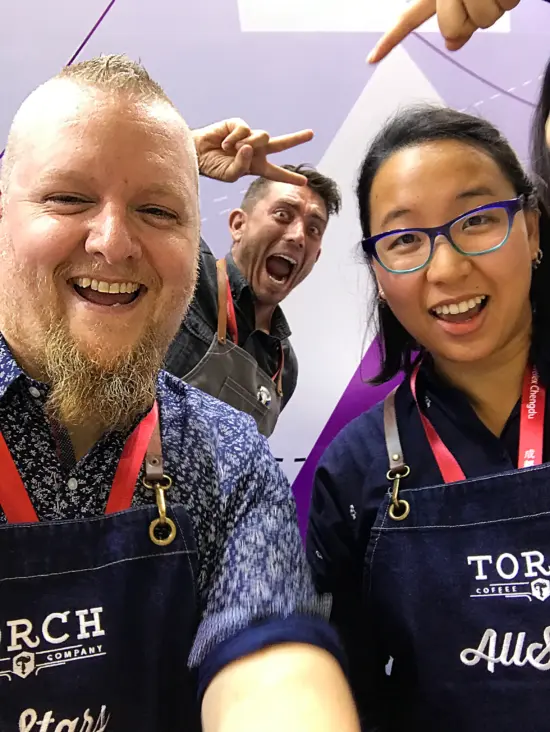
What would be your defining moment as an emcee to date, or most memorable instance during one of these events?
Having the privilege of announcing the winner is amazing. To know before everyone else feels really cool. Because I have been in that situation myself, I know that I am about to make someone’s day. Possibly their year. I know that the thing to do is to build tension and create delays to manufacture drama, but I also know that is really hard on the competitors too.
I’ve also been on the losing side of those announcements, and I know that what I want to do in those situations is get off the stage as quickly as I can to gather my thoughts. I always want to make sure that I say a kind and positive word about the runner-up, as their achievement is all too often overlooked, and the crushing pain of disappointment at not having won is awful. Those joy and heartbreak juxtapositions are always the key moments of an emcee session and live in the mind.
In your opinion, how does having an emcee enhance the overall experience of a competition for competitors and audience members?
With the best will in the world, coffee competitions can be a little dry if you don’t fully understand what is going on. Having an emcee who can fill silences, explain, and manage the show is really useful for an audience. For competitors too, they can use the emcee to add communication to their routine that otherwise would be lost.
Again, having competed, I know that there is an army of people supporting the competitor, and the brief time period to compete doesn’t give you long enough to thank them. A good emcee will always ask you a question after the performance that gives you that opportunity.
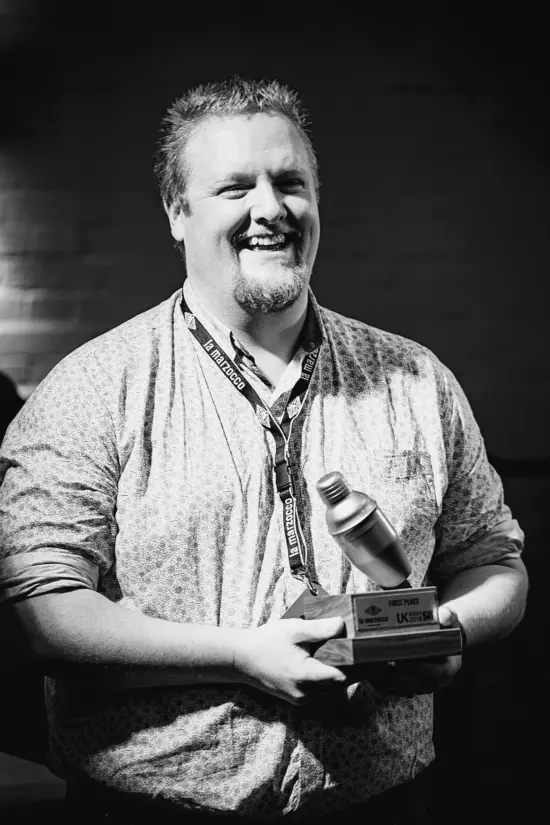
What do you think are the unique skills required to be a successful emcee in coffee competitions?
It’s more than just an ability to talk to an audience. Of course that’s a prerequisite. You should understand the competition, the judging, the rules, and the personalities. Know when to speak and when to listen, and observe the routines to call out specifics that the barista will want to talk about. You also need to be able to translate the dry and serious world of competitions into something fun and engaging. It’s hard work, and when the words dry up, you’re on stage, and there’s no script, it’s very hard. That’s when thanking the sponsors one more time really comes into its own.
Could you tell us about some of the unique challenges that arise when hosting a coffee competition and how you have navigated these?
I remember hosting the Hungarian AeroPress Championship in 2017. It was running behind, and was in a bar in a residential building on a weeknight. We got to curfew and the competition still had a few rounds to go. So I had to switch styles from energetically trying to make the crowd cheer loudly for the competitors to introducing the concept of the cricket ripple to Budapest.
I don’t think they even play cricket in Budapest. So I first had to explain what cricket was, then explain that there was this quiet, laid-back, appreciative applause that is heard in cricket when someone does something good, then I had to persuade a drunk and rowdy crowd that this was the best way to celebrate their new national champion or we’d be thrown out of the bar. And I had to do it while trying to pronounce Hungarian names. It was great fun!
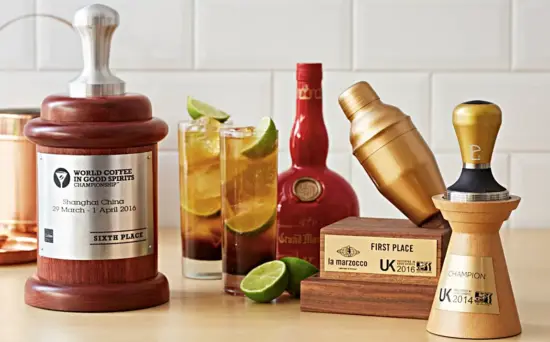
Is there anything else that you’d like to share about your experience as an emcee or about coffee competitions?
I have gained so much from coffee competitions over the years. I’d really like to be able to stay involved with them now, but I just don’t have enough time to manage it. I can think back fondly to some of the events that I hosted and be really proud of a job well done. I always say that you can tell if a barista is lying because they claim to be retired from competitions. Maybe the same is true of emcees too?
ABOUT THE AUTHOR
Vasileia Fanarioti (she/her) is a senior online correspondent for Barista Magazine and a freelance copywriter and editor with a primary focus on the coffee niche. She has also been a volunteer copywriter for the I’M NOT A BARISTA NPO, providing content to help educate people about baristas and their work. You can follow her adventures at thewanderingbean.net.


